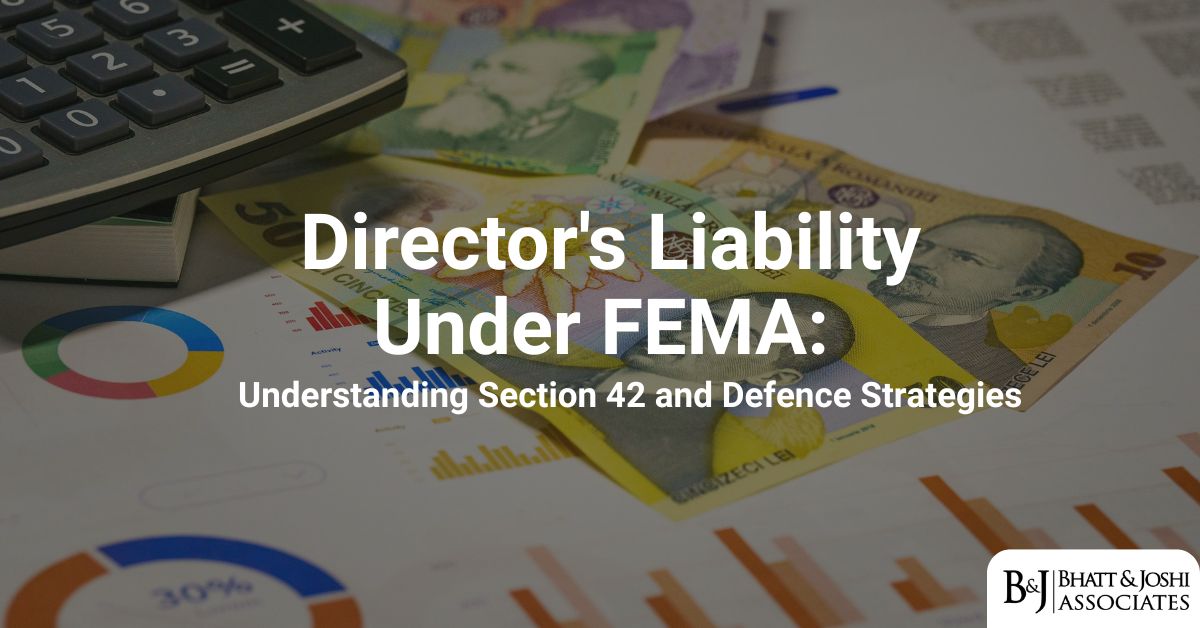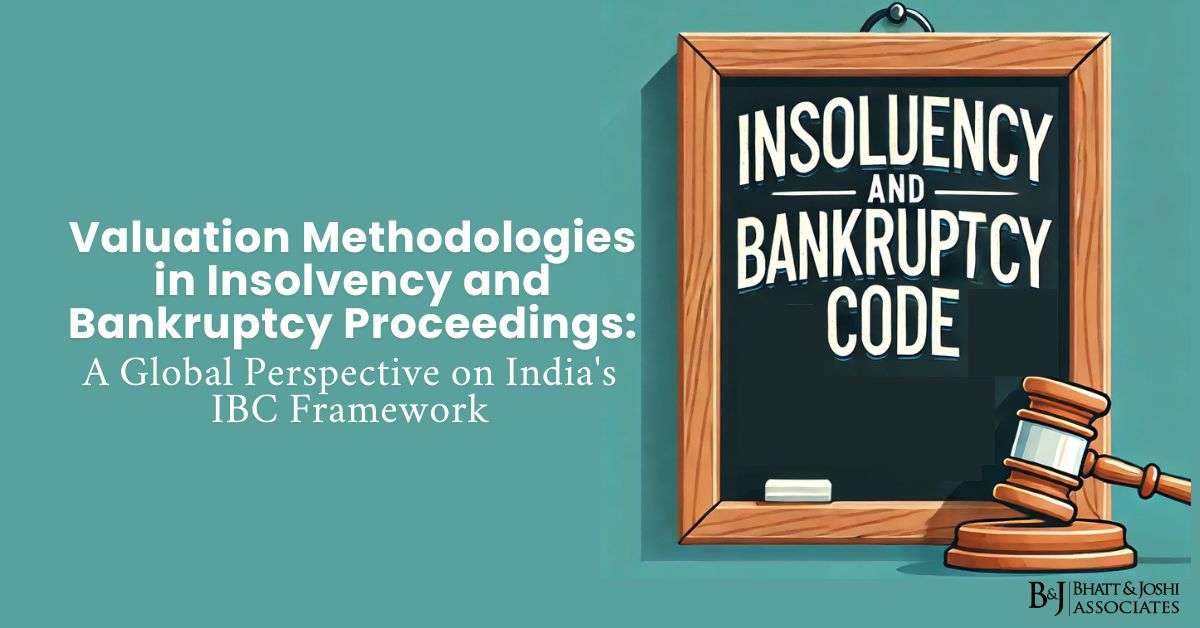Introduction
The Foreign Exchange Management Act, 1999 (FEMA) aims to regulate foreign exchange in India. When a company contravenes FEMA provisions, the Act also determines who can be held liable for such violations. Director’s liability under FEMA is primarily governed by Section 42 of FEMA, which outlines the circumstances under which directors and other officers can be held accountable. This guide explores Section 42 of FEMA and provides strategies for directors facing allegations under FEMA.
Understanding Director’s Liability under FEMA
One of the fundamental principles of corporate law is the separate legal personality of a company and its directors. However, director’s liability under FEMA, particularly under Section 42 of FEMA, creates exceptions to this principle, potentially holding individuals within a company liable for its contraventions.
Section 42(1) of FEMA states that if a company contravenes any provision of FEMA or its rules, directions, or orders, every person who, at the time the contravention was committed, was in charge of, and was responsible to, the company for the conduct of the business of the company, as well as the company itself, shall be deemed to be guilty of the contravention. This provision introduces a deeming fiction of liability for those in control.
However, the proviso to Section 42(1) offers a crucial defence: a person shall not be liable if they prove that the contravention took place without their knowledge or that they exercised all due diligence to prevent such contravention.
Section 42(2) extends liability to other officers of the company if the contravention occurred with their consent or connivance, or is attributable to their neglect. In this case, the adjudicating authority needs to demonstrate the individual’s facilitation of the contravention.
Judicial Interpretation of Section 42
Indian courts have provided significant clarity on the application of Section 42, emphasizing that liability is not automatic based solely on holding a directorial position.
- In S.M.S. Pharmaceuticals Ltd. v. Neeta Bhalla, the Supreme Court ruled that directors are not automatically liable for a company’s contraventions. Sufficient evidence must be presented to demonstrate that the concerned person was involved in the contravention.
- The Appellate Tribunal in Jaipur IPL Cricket Private Limited and Ors. v. The Special Director Directorate of Enforcement, Bangalore laid down the principle that mere directorship is not enough to impose a penalty. The authority must establish a nexus between the individuals and the contravention before penalising them. The court clarified that liability arises from conduct, act, or omission, and not merely from holding an office.
- The Bombay High Court’s decision in Shashank Vyankatesh Manohar v. Union of India highlights the importance of actual involvement and due diligence. The court held that the President of BCCI was not liable for FEMA violations as he played no role in the operational matters and had instructed those in charge to obtain necessary approvals. This case underscores that exercising diligence can be a valid defence.
- Conversely, the Supreme Court in Suborno Bose v. Enforcement Directorate held that a Managing Director could be proceeded against for a continuing offence under FEMA (Section 10(6)), even if they assumed the role after the initial contravention. The liability arose from their failure to rectify the ongoing contravention despite being aware of it, indicating liability through neglect.
- The cases of Pankaj Gupta v. Enforcement Directorate and Jaipur IPL Cricket (Ms. Haldi) demonstrate that non-executive or nominee directors with no operational involvement or knowledge of the contravention are unlikely to be held liable. The focus remains on the individual’s actual role and involvement.
Defending Against FEMA Allegations Under Section 42
Directors facing allegations under Section 42 of FEMA can employ several strategies for defence:
- Lack of Knowledge: Directors can argue that the contravention occurred without their knowledge. This aligns with the proviso to Section 42(1). However, the threshold for proving a lack of knowledge is high, especially for those in managerial roles.
- Exercise of Due Diligence: Demonstrating that all reasonable steps were taken to prevent the contravention is a strong defence under Section 42(1). This might involve showcasing robust internal compliance mechanisms, regular oversight, and proactive measures to ensure adherence to FEMA regulations.
- No Involvement in the Contravention: For non-executive or independent directors, emphasizing their lack of involvement in the day-to-day operations and the specific contravention is crucial. As highlighted in judicial precedents, liability is linked to active involvement or neglect, not merely the title.
- Contravention Without Consent, Connivance, or Neglect (for other officers under Section 42(2)): Officers who are not in overall charge can argue that the contravention did not occur with their consent, connivance, or due to their neglect.
- Challenging the Existence of the Contravention: A fundamental defence is to argue that the company itself did not contravene any provisions of FEMA.
- Principles of Natural Justice: As discussed in the context of challenging FEMA orders generally, demonstrating a violation of the principles of natural justice (e.g., lack of a fair hearing) can be a ground for defence [your previous response].
- Reasonable Timelines: While FEMA doesn’t have a strict limitation period, undue delay by the Enforcement Directorate (ED) in initiating investigation proceedings can be raised as a concern, drawing on principles of natural justice [24, 25, your previous response]. Courts may expect the ED to justify significant delays [24, 26, your previous response].
Key Considerations
- The burden of proof for the defences under Section 42(1) lies with the director.
- Maintaining thorough records of board meetings, internal communications, and compliance efforts is vital for building a strong defence.
- The focus of the adjudicating authority should be on the involvement of the individual in the specific contravention, not just their position within the company.
- The Enforcement Directorate (ED) is the primary agency for investigating FEMA contraventions and issuing show cause notices. Directors receiving such notices must respond comprehensively with evidence supporting their defence.
Conclusion
Director’s liability under FEMA, particularly through the lens of Section 42, is a nuanced area of law. While the Act contains deeming provisions for those in charge, judicial pronouncements have consistently emphasized the need to demonstrate actual involvement, consent, connivance, or neglect. Understanding the provisions of Section 42, relevant case law, and the available defence strategies is paramount for directors facing allegations of FEMA contraventions. A proactive approach to compliance and meticulous documentation can significantly aid in defending against potential liabilities.
Citations:
-
S.M.S. Pharmaceuticals Ltd. v. Neeta Bhalla & Anr., (2007) 4 SCC 70. Available at: indiankanoon.org
-
The Special Director, Directorate of Enforcement v. Jaipur IPL Cricket Pvt. Ltd., (2023) SCC OnLine Bom 2194. Available at: indiankanoon.org
-
Shashank Vyankatesh Manohar v. Union of India, Writ Petition No. 5305 of 2013, Bombay High Court. Available at: indiankanoon.org
-
Suborno Bose v. Enforcement Directorate & Anr., (2022) SCC OnLine Cal 1234. Available at: casemine.com
-
Pankaj Gupta v. Enforcement Directorate, (2017) 349 ELT 633 (ATFE). Available at: casemine.com
Article by: Aditya Bhatt
Association: Bhatt and Joshi












